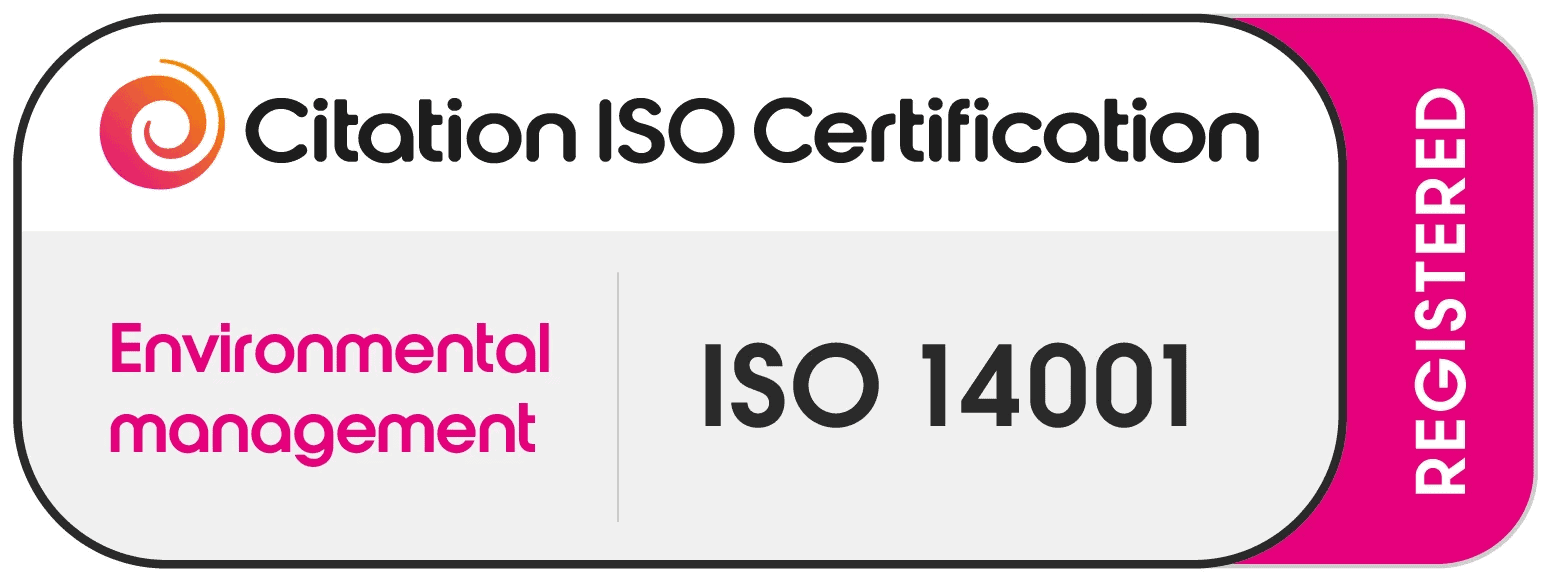Creating an environmental management system (EMS) with the ISO 14001 framework helps your business set out targets to monitor how sustainable your organisation is. Reducing waste management costs across your business helps drive down unnecessary outlays, power efficiency and meet compliance standards.
ISO 14001 helps you to detect any shortfalls in your environmental measures, so you can review and address any areas you need to. An effective EMS gives you the platform to meet sustainability standards, comply with environmental regulations and save money! All positives, right? But, how do you get ISO 14001 certification? Well, sit back and find out with our extensive guide. Let’s jump straight in!
The benefits of investing in ISO 14001
Across the globe, sustainable practices are becoming increasingly prominent for businesses. However, going green doesn’t just mean reducing the amount of paper or plastic you use, of course, they’re contributing factors, but there’s much more to it!
An EMS offers a rounded approach to sustainability that also helps grow your business. Getting certified for ISO 14001 brings with it many benefits which include:
- Effective waste management that reduces costs.
- Drive efficient use of your existing resources.
- Promotes a proactive approach that raises awareness of sustainability across your business.
- Enhances your reputation as a sustainable innovative business within your sector.
- Gain the edge over your competitors to win new business and tenders where ISO 14001 certification is a requirement.
If that isn’t enough to entice you, then why not check out our dedicated blog post on investing in ISO 14001 here.
Common ISO 14001 non-conformities
Non-conformance can cause lots of issues for your business if you repeatedly fail to take note of the warnings. Regulators and customers now expect businesses to be sustainable, so the need for a robust EMS that reduces the risk of non-conformities increases.
Non-conformities relating to the ISO 14001 Standard are common, but they’re easy to address by adhering to the framework set out in your EMS. Avoiding non-conformance means bearing the following points in mind:
- Set out your environmental procedures in the form of a manual or documented handbook.
- Carry out frequent risk assessments that examine the environmental impact of your business measures.
- Upskill your workforce with dedicated training for ISO 14001 that raises environmental awareness.
- Perform internal audits to examine how effective your current procedures are working. Are there areas that can be tightened up to improve results?
- Do you have a clear environmental policy that aligns with your company objectives?
Explore ISO 14001 non-conformance further in our blog post here.
ISO 14001 v ISO 50001 – what’s the difference?
Environmental management is crucial and ISO 14001 is the key to meeting compliance. But, have you ever considered the energy performance of your business? Well, now you can do that too, courtesy of the ISO 50001 Standard. Similarly to ISO 14001, the framework offers guidance for businesses to develop a management standard, with an emphasis on reducing CO2 emissions and energy consumption. ISO 50001 focuses on the energy management Standard (EnMS), and both Standards follow the Plan Do Check Act methodology, with input from senior management that helps condense management and analysis of any issues that arise.
Implementing ISO 14001 or ISO 50001 provides your business with the opportunity to protect the environment through a series of defined policies, objectives and processes.
As the two issues each Standard tackles often overlap, we’ve written this handy blog post comparing ISO 14001 and ISO 50001 to clear up any confusion for you.
The latest version of ISO 14001
ISO 14001:2015 still remains the most recent update to the Standard. A review took place in 2021, however, no adjustments to the framework were made. The main areas to focus on for your business include:
- Improving environmental performance through efficient management.
- A communication strategy that keeps your organisation aligned on its environmental goals.
- Updated requirements that place more emphasis on leadership engagement.
- Changes to how your documentation should be recorded.
Clauses 4-10 of the Annex SL framework comprises the Standard, and you can find more information in our blog – What is the latest version of ISO 14001?
Staying sustainable with ISO 14001
Adherence to the ISO 14001 framework means you can develop a process of continual improvement and document your environmental impact sufficiently. The great thing about ISO 14001 is the flexibility it affords you when developing your sustainability goals. Think about what you want to achieve in the short term, but look further ahead and plan for the long-term future too. You may want to consider how you use appliances and resources throughout the workplace that consume energy. Perhaps you can look at future-proofing certain materials for an efficient approach to upgrading and recycling.
Sustainability should be central to the focus of senior leadership across your business. Responsibility and opportunity can work in tandem together to elevate the sustainability of your business, leading to enhanced reputation, better business opportunities and reduced waste for your business.
Get ISO 14001 with Citation ISO Certification
Getting ISO 14001 certified is a simpler process if you partner with us! Our ISO 14001 auditors and consultants will work alongside you every step of the way to offer guidance and support that helps you certify quickly and efficiently.
You’ll also gain instant access to our bespoke online management platform, Atlas ISO, so you can view all your important documents relating to your ISO 14001 certification.
Our simple, cost-effective solution for ISO 14001, and as one of the UK’s leading ISO certification bodies, we’re experienced in helping businesses improve quality and achieve consistency across your processes.
So, to request your quote today, contact our friendly, professional team directly at 0370 218 6753. Partner with Citation ISO Certification and get your business ISO 14001 certified!

